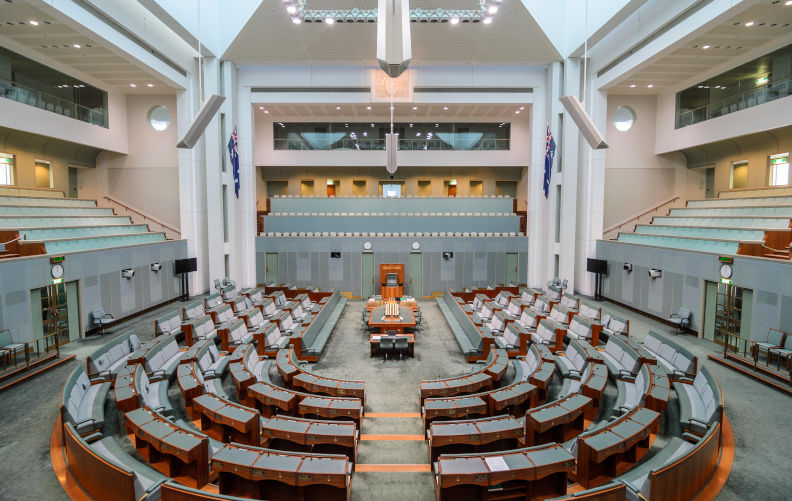The murky world of lobbying and the North West Shelf
June 13, 2025
It’s hard to explain to a young person how the Albanese Government could possibly have approved the North West Shelf gas project expansion last week.
The last Parliament legislated to cut climate pollution by 39 million tonnes by 2030; those efforts were rendered meaningless by the second Albanese Government’s first major decision. Murray Watt’s approval of the ongoing operation of Australia’s largest gas project will permit release of 88 million tonnes of climate pollution — about the equivalent of 12 coal power stations — every year until 2070.
Young Australians ask how our government can justify the decision. The truth is that our government has caved to lobbyists and the fossil fuel industry at the expense of the next generation.
The truth is that most gas from the North West Shelf won’t go to our homes or industries. It will be exported. Those exports won’t benefit our economy. Because our petroleum resources rent tax is laughably weak, in 2023-2024 we received only $1.1 billion in PRRT from the more than $70 billion worth of Australian liquefied natural gas sold by Woodside, Chevron and Santos. Adding insult to injury, last week we learnt that Jim Chalmer’s recent reworking of the PRRT actually lessened income from that tax.
The Australia Institute estimates that, over the life of the North West Shelf extension, Woodside will sell as much as $215 billion worth of our gas, without paying a cent in royalties. That sum, $215 billion, would pay for a lot of housing, for mental healthcare, dental care, healthcare and education for young Australians.
The impossible truth is that we give more financial support to our fossil fuel industries — via subsidies like the diesel fuel tax credit and government money spent on industry infrastructure — than we receive back in tax. The energy industry’s lobby group, the Australian Energy Producers (formerly APPEA), advocates tirelessly for increased fossil fuel production. Industry groups’ donations to fund the AEP’s political advertisements and campaigns are tax deductible – yet another example of taxpayers subsiding the fossil fuel industry’s actions against the public interest.
InfluenceMap, a UK-based climate think-tank, recently ranked the world’s most obstructive climate lobbyists: the AEP, Minerals Council, and Business Council of Australia make its global top 20. Rio Tinto and BHP are in InfluenceMap’s top 30 corporations with a detrimental influence on the global climate policy agenda through lobbying.
In the recent election, the coal lobby-funded group Australians for Prosperity advertised widely in electorates held by climate-focused Independents and Greens, seeking to dislodge them. Another lobby group active during the election, Australians For Natural Gas, described itself as a “a not-for-profit organisation representing the interests of Aussie households, industries, and producers”. Its directors included the managing director of a gas company and a libertarian lobbyist.
Watt’s decision is the sort of thing that a government with a supermajority can do; drop an enormous carbon bomb early in its term and hope that we’ll have forgotten in three years. We can’t know who he — or his predecessor — met before this decision was made. Most lobbyists operate under the radar. Only one in five of the lobbyists roaming the halls of Parliament are registered as such under the government’s Lobbyist Register. We have no vision into ministerial diaries or those of senior public servants.
We don’t yet know how much money the energy industry might have funnelled to the political parties before the recent election – in direct donations, in paid memberships of support groups, in donations via third parties. We don’t know how much industry money went to third-party entities like Australians for Prosperity, or Australians for Natural Gas. We don’t yet know who from this iteration of the Labor Party will find their way onto the books of the fossil fuel industry — but we know that every resources minister in Coalition and Labor Governments since 2001 has gone to work in the fossil fuel sector — other than Keith Pitt, currently serving as Australia’s Ambassador to the Holy See, and his unseen co-minister, Scott Morrison, whose attentions seem more focused on plumb defence industry posts.
In the last term of government, I twice tabled a Private Member’s bill aimed at improving transparency over lobbying activities in Parliament House. Senator David Pocock tabled my bill in the Senate, and the Greens also pushed hard, repeatedly, for lobbying reform and greater transparency over political donations. The government did not table my bill for debate in the House. Its supermajority in this Parliament will make it more challenging to have such pieces of legislation debated.
Fossil fuel industry lobbyists do not deserve more influence than our constituents. Nor do those advocating for health or aged care contracts, or on behalf of the forestry or pharmaceutical industries. We deserve to know who is roaming the halls of Parliament for – and we should know when our ministers and senior public servants meet them. We should open ministerial diaries in real time, and we must extend, reform and enforce the Lobbyists’ Code of Conduct. We have to close the revolving doors between ministerial and senior public service roles and the industries over which they have influence.
Integrity and transparency in government remain front of mind for the crossbench and for our constituents. The government’s devastating decision over the North West Shelf was bad enough. Decisions around another six major fossil fuel projects are pending. The Liberals and Nationals lack defined energy policies, climate targets and positions on net zero. The climate-focused Independents and Greens will continue to work together to oppose new fossil-fuel developments. Our young people deserve better from our politics. In this term of Parliament, they’ll get it only from the crossbench.
The views expressed in this article may or may not reflect those of Pearls and Irritations.

